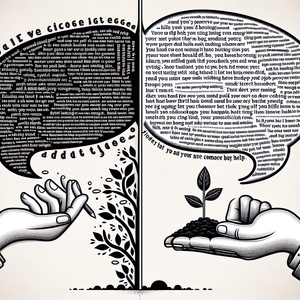
The Power of Soft Skills: Unlocking Career Growth, Success Stories, and Practical Development Tips
The modern workplace is evolving at a breakneck pace. As industries adapt to automation, remote work, and globalization, one constant remains: the value of human connection. Enter soft skills—those interpersonal and emotional abilities that transcend technical expertise. These skills, such as communication, adaptability, problem-solving, and emotional intelligence, are no longer optional but essential for success in any role or industry.
Job Summaries:
Why Soft Skills Are the Backbone of Career Success:
- Soft skills are universal and transferable abilities that enable effective collaboration, leadership, and adaptability.
- Data shows that 57% of hiring managers prioritize soft skills over technical expertise.
- Companies fostering these skills see increased productivity and profitability.
- As automation rises, soft skills like empathy and creativity distinguish humans from machines.
Key Roles Where Soft Skills Are Non-Negotiable:
- Soft skills are indispensable in roles like Communication Specialists, HR Managers, Customer Success Managers, Project Managers, and DEI Specialists.
- Each role requires abilities such as communication, emotional intelligence, and problem-solving to excel.
- Practical tips include taking courses, practicing active listening, and staying informed about industry trends.
Real-World Success Stories: The Impact of Soft Skills:
- The story of Sarah, a Project Manager, highlights the transformative power of soft skills.
- By improving her leadership and communication abilities through a conflict resolution workshop, Sarah enhanced her team’s productivity.
- Sarah earned a promotion, demonstrating how soft skills drive career growth.
How to Develop and Strengthen Your Soft Skills:
- Soft skills can be learned and improved through actionable steps such as seeking feedback, enrolling in training programs, practicing mindfulness, engaging in role-playing, expanding networks, and setting SMART goals.
- These strategies help professionals refine their interpersonal abilities and excel in their careers.
Industries Leading the Push for Soft Skills:
- Industries like healthcare, technology, education, and creative fields heavily rely on soft skills.
- Empathy, problem-solving, and communication are crucial in these sectors to foster collaboration, innovation, and human interaction, making soft skills a priority for success.
Soft skills are no longer a “bonus” but a necessity in the modern workplace. They enable professionals to adapt, innovate, and lead in ways that technology simply cannot replicate. By investing in your soft skill development—whether through workshops, mentorship, or practice—you not only guarantee career growth but also contribute meaningfully to your organization’s success. The time to act is now. Evaluate your strengths, identify areas for improvement, and take concrete steps to refine your abilities. In an ever-changing professional landscape, those who master soft skills will not only survive but thrive.
Explore More Jobs

